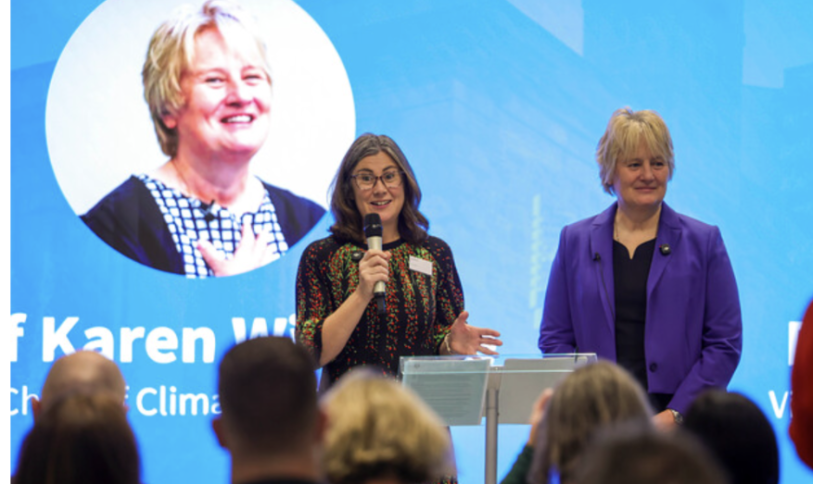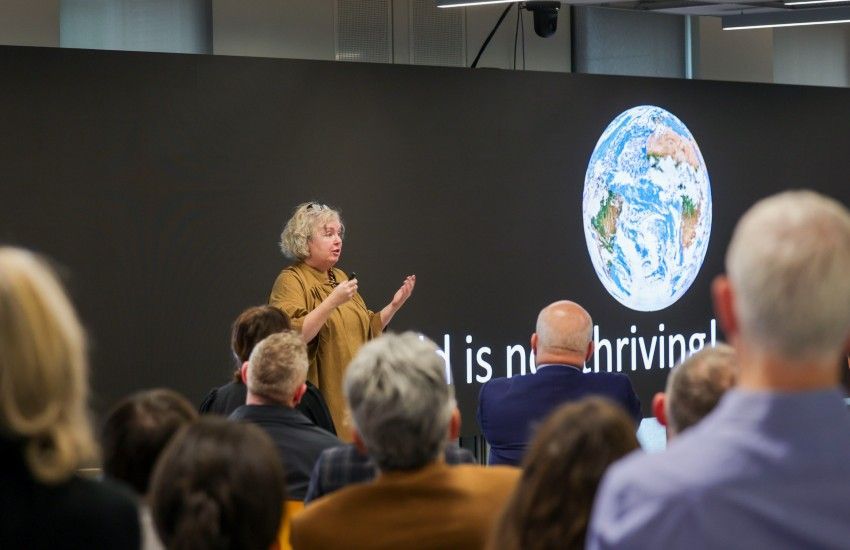Trinity College Dublin has thrown open the doors to its inaugural Climate Gateway, a bold new initiative designed to marshal the university's vast expertise and drive concerted action on climate change. This is more than just a website; it’s a dynamic platform uniting climate researchers, innovators, educators, and communities to collectively build a truly resilient future.
Spearheaded by Professor of Climate Science Karen Wiltshire, the Gateway has a triple mandate: to sharpen policy, pioneer innovative solutions, and cement a shared sense of accountability across the island. The message is clear: everyone is encouraged to visit the Climate Gateway website and roll up their sleeves.
"There is far too much scaremongering surrounding the climate crisis," Professor Wiltshire observed. "We tend to forget that Ireland has a proud tradition of community action and a robust collective awareness of the sheer scale of the challenges we face. It won’t be easy, but we absolutely can act."
Whilst acknowledging the destabilising effects of extreme weather, resource pressures, pandemics, sea-level rise, and biodiversity loss globally, Prof. Wiltshire maintains that "we in Ireland have a genuine opportunity to demonstrate leadership in this space. And that, in essence, is what the Climate Gateway is all about."

Above: Professor of Climate Science Karen Wiltshire (pictured above on the right with Prof. Jane Stout)
She added: "The Climate Gateway is the crucial intersection – between academic disciplines, between Ireland and the world, and most importantly, between research and tangible action. By inviting Ireland’s public sector, industry leaders, and communities to step onto this exciting path, Trinity aims to confront the climate crisis head-on and forge a thriving, resilient future for generations to come."
Trinity Provost Dr Linda Doyle (pictured below), launching the initiative, affirmed the university’s commitment: "The University is utterly determined to play its part in what is undeniably the defining crisis of our age. By strategically networking its formidable expertise across science, engineering, health, and the humanities with Irish and international partners, Trinity’s Climate Gateway is opening ambitious new pathways for large-scale climate action."

The launch itself, held in the Trinity Business School, featured a lively series of discussions led by Prof. Wiltshire and Vice President for Biodiversity and Climate Action Prof. Jane Stout. The panels brought together a powerful mix of academics, students, policymakers, business figures, and community leaders, including:
-
Dr Colin Hunt, CEO of AIB Group.
-
Eirgrid chair Brendan Tuohy; Deirdre de Bhailis, manager of the community enterprise Dingle Hub; and Helen McHenry, Policy Analyst at the Western Development Commission.
-
Matt Smith, CEO of nature restoration charity Hometree; and Gerry Clabby, Principal Advisor at the Environment and Climate Research Advisory Unit at DCEE.
-
TILDA’s Prof. Cathal McCrory; Colin O’Hehir, Climate Policy Lead, Department of Health; and Róisín Breen, Programme Manager, HSE Climate Action and Sustainability programme.
Further underscoring the collaborative spirit, the launch included the unveiling of the Trinity Climate Gateway Exhibition, a stimulating collection of student-led projects and interactive art installations.
Sustainability is now intrinsically knitted into all six commitments within Thrive, Trinity’s recently-launched five-year strategic plan, confirming the central importance of climate action and biodiversity across the university.
The Trinity Sustainability Office is driving an ambitious agenda to slash emissions by 51% by 2030 and achieve net zero by 2040. This work powerfully connects climate, nature, and health—linking environmental efforts directly to biodiversity and human wellbeing. Campus operations are being thoroughly transformed through sustainable procurement, energy efficiency, nature-positive initiatives, greater circularity, and sustainable travel and food policies. Crucially, climate leadership training for staff and students is actively cultivating a climate-conscious workforce and reshaping institutional practices.
Recent research initiatives have already laid strong foundations, including the Climate Co-Centre, a tri-jurisdictional research hub linking the Republic of Ireland, Northern Ireland, and Great Britain, and the AIB Trinity Climate Hub, which backs research identifying solutions and building capacity through the AIB Climate Leaders programme.
Students are central to this transformation. Trinity’s Sustainability Strategy requires all students to develop the knowledge, skills, and attitudes to think, plan, and act with responsibility for themselves, each other, and the planet. In the E3 Learning Foundry, students will collaboratively design and test real-world solutions. Trinity is also offering a micro-credential in Climate Leadership and delivering postgraduate qualifications in Climate Entrepreneurship, actively training innovators to accelerate the low-carbon transition.
This new Climate Gateway will now amplify and supercharge all of these diverse efforts. Its core vision is to better connect policymakers, industry, educators, and communities with Trinity’s deep expertise, whilst simultaneously empowering students and professionals to directly shape Ireland’s climate future.
This move aligns perfectly with public sentiment: surveys show exceptional support from the Irish public for climate action. For instance, the EPA’s 2024 Climate Change in the Irish Mind survey revealed that 81 percent of people in Ireland are worried about climate change, and 79 percent believe climate change should be either a “very high” or “high” priority for the Government.
